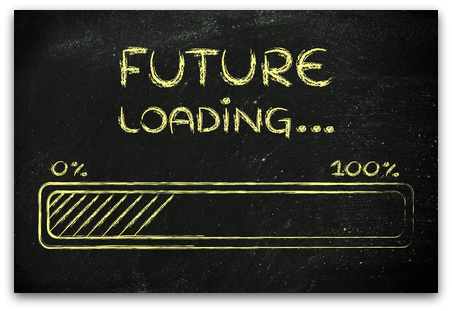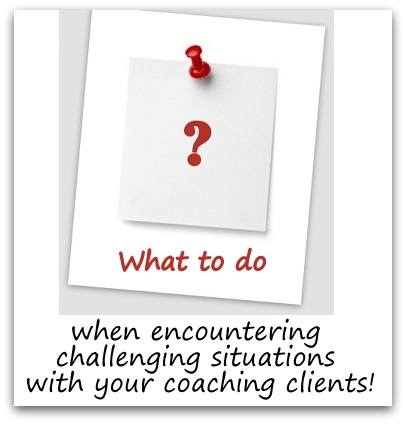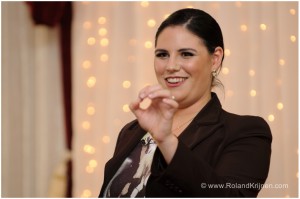Coach Frederique Murphy shares her experience and thoughts in today’s guest post.

What to do when encountering challenging situations with your coaching clients!
by Frederique Murphy
This is my fifth guest blog post, and as with every blog posts, I thrive to tackle topics that might not necessarily be often tackled! Earlier this year, when Jen and I discussed the dates for my blog posts, I told her that I knew exactly what my final 2012 blog post would be, and here it is! In this article, I want to talk about, the events when you, as the coach, encounter some challenging situations with your coaching clients.
After close to 5 years of coaching, I can say that I have encountered all of these; and, yes, I am saying it out loud, and publically: it is actually rare for coaches to talk about these situations, even though, they happen. I want to break that pattern, and help you through these. I believe that these situations have either happened to you, or might happen in the future as you continue to stretch and grow yourself and your coaching practice. I also want to say upfront that in most cases, these situations are not a negative reflection of your coaching services. But, as these are often unspoken, when they happen, many coaches feel it was their fault and go into a shame/guilt/unworthy destructive cycle.
So, let’s openly talk about these, and see how we can shift and move forward.
Challenging situation #1
Your coaching client does not “show up”.
And, I don’t mean physically! You know, when they sign up to your coaching programme, and, somehow, don’t “show up”; they might arrive late to your sessions, they might not listen to your programme classes, they might not read your emails, they might not open your attachments, they might not reply to you, etc, etc, etc; these type of things. You know, as the coach, that showing up and playing fully is critical to their success; your coaching programme might be one of the best programmes out there, and yet, it will not do anything for them if they don’t utilised it. It is a challenging situation, as you know that they are not utilising the programme, and know they would get even more out of it, should they do, of course.
So, what do you do? Address it with them, and I suggest to invite them to an additional session (I’d not address this during one of their coaching sessions), but keep it separate and frame the session to find out how they are getting on. There will be 3 scenarios:
- you address it, ask how they are doing, and (prepare to be surprised), they tell you they are satisfied with the coaching programme! => key lesson: you are not them, and if they are satisfied with what they are getting, then let it be, they are getting what it is they want; your conversation is a good platform to remind them of the various components and encourage them to utilise them to get the best of your programme, that way you’ve reached out to them and reminded them of what is available to them,
- you address it, ask how they are doing, and (prepare to be surprised), they tell you they are satisfied with the coaching programme, but in fact, they are not! => key lesson: you’ve reached out to them, and, asked what you could do to ensure they would get a satisfied experience, and they, for whatever reason, lie to you; fast forward a bit, and they will soon end their relationship with you, unless, you take charge first, and realise you are not happy working with clients who are not showing up and playing fully, and you take the lead in ending the relationship; this is entirely up to you,
- you address it, ask how they are doing, and they tell you they are not satisfied with the coaching programme => key lesson: you’ve reached out to them, and, you can now openly talk about it; discuss what is going on, and see if you can come up with ways to make it work; this is an important conversation, and you can turn things around, if both of you are up for it.
Challenging situation #2
Your client does not take actions.
This is a similar situation, as the first one. Here, something for you to be very clear about is that acting is 100% their responsibility; they will not get results if they don’t act, and you cannot guarantee them results, as you are not the ones taking the actions. So, it comes down to their actions
So, what do you do? Address it with them, and I suggest to invite them to an additional session (again here, I’d not address this during one of their coaching sessions), but keep it separate and frame the session to find out how they are getting on, and share your concerns with them. See where this conversation leads you; ultimately, it will once again be up to you, and you might be a coach, who is not happy working with clients not taking actions, and decide to end your relationship.
Challenging situation #3
Your coaching client does not like it when you push their buttons.
Another challenging situation, right? I want you to ask yourself: is pushing buttons part of your role as a coach? I believe it is, in fact, an integral part of your coaching; when something needs to come out but does not, you might need to make it come out and however way you will do it, it might cause the client to feel the heat; you are not their friend, you are their coach, and your outcome is to do whatever is needed to support them, and sometimes supporting them means to push some buttons to get them moving forward.
So, what do you do? Address it with them, and I suggest to invite them to an additional session (again here, I’d not address this during one of their coaching sessions), but keep it separate and frame the session to find out how they are getting on. This will enable you to openly discuss and see how your coaching client is, and to (re)share with them your role, values and practices. However way you do it, I want to strongly emphasise the fact that I believe you should not change your style to suit your clients. In my previous article Mirror, Mirror On The Wall, Who Is The Best Of Them All? I talked about coaching styles, and reminded you that “Your coaching style will be the best for some, and completely clash for others.” And this is what might be happening. During your conversation, you will either decide to make it work, or to end the relationship if you feel this is not going to work. Again here, it is entirely up to you.
Challenging situation #4
Your client expects ABC, and you give them XYZ.
This situation is another challenge in itself! When you are coaching your client, your key outcome is to coach them to the best of your ability. You come to their sessions, without any agenda. However, very often, your coaching client will come to their session with their agenda, their ABC. And, here is what happens; they want ABC, but, for whatever reason, they also come in with a bunch of “stuff”, and you, as the coach, make a judgement call, in tackling the stuff, as you professionally know that once it is tackled, it will make it easy to then move their focus onto ABC; so, you do, XYZ, as you feel, it is what will best support your coaching client in that session. The thing is, they don’t know what’s going on, they are not trained as coaches, so from their point of view, they’ll see things as wanting to get ABC, but getting XYZ instead; and it might well have been that XYZ created huge shifts and breakthroughs, but, it was not ABC, bottom line, they did not get what that wanted.
So, what do you do? In this case, I believe, that instead of being a “what do you do?” question, it is actually a “what can you do post-session? question. Because, you did what you decided was best at the time of the session, so now, it is looking into the post-session follow-up to ensure your client remains satisfied. It has happened to me a couple of times, and should these scenarios happen again, I would do exactly the same things, as in, do the XYZ first and then, deliver a post-session action to ensure you address the ABC.
The BIG silver lining!
While these situations are challenging to face, I actually believe that experiencing these scenarios will make you a stronger coach, as each of these will be beneficial to your growth. You will learn from each of these, and if necessary, refine some of your internal and external processes, that will make your practice stronger too. Now, for this to happen, and for you to be able to view these situations as something positive along your journey, you need to ensure that as these happen, you discuss them with your own coach, so that he/she can help you through these. This is very important.
This is not an exhaustive list, and the recommendations I am giving are the ones that have worked for me; but there are plenty of other ways to tackle these challenging situations. Remember, the key thing is that you should do whatever you think is best for you and your client; I truly believe that facing these situations head on is the best first step. Be proud of who you are as a coach, and stand by your practice.
Have you ever encountered one of these 4 challenging situations with your coaching clients? What did you do? I’d love for you to share, this will be so helpful for other coaches. Comment below!
About the Author/Further Resources
 Frederique Murphy (@IrishSmiley on twitter) is a mindset strategist, who founded her business to focus on her passion: transformation! Thanks to her Mountain Moving Mindset programme, Frederique empowers individuals, corporate executives and business owners to master their mindset, so that they can move mountains and bring their life, career and business to a whole new level! She shares her M3 Power through her coaching & mentoring packages, her published books & articles, her award-winning blog and newsletters, and her unique live events. For more information on Frederique’s transformational range of products and services, visit FrederiqueMurphy.com, get your free M3 Power, and start climbing now!
Frederique Murphy (@IrishSmiley on twitter) is a mindset strategist, who founded her business to focus on her passion: transformation! Thanks to her Mountain Moving Mindset programme, Frederique empowers individuals, corporate executives and business owners to master their mindset, so that they can move mountains and bring their life, career and business to a whole new level! She shares her M3 Power through her coaching & mentoring packages, her published books & articles, her award-winning blog and newsletters, and her unique live events. For more information on Frederique’s transformational range of products and services, visit FrederiqueMurphy.com, get your free M3 Power, and start climbing now!

 Specialising in Inspirational Leadership, Frederique Murphy is a mindset strategist who inspires leaders to believe and accomplish the extraordinary. With her Mountain Moving Mindset (M3) platform, she equips you with scientifically-based strategies to take your life, career and business to a whole new level: she makes change happen. With over 15 years of experience in corporate change and expertise in positive psychology, neuroscience and behaviour change, she helps your organisation reap the benefits of tapping into the power of the mind. Frederique is a passionate and charismatic speaker, who captivates audiences – when she takes to the stage, sparks fly and beliefs, attitudes and behaviours will be instilled to create lasting change. For more information on Frederique’s transformational services, visit
Specialising in Inspirational Leadership, Frederique Murphy is a mindset strategist who inspires leaders to believe and accomplish the extraordinary. With her Mountain Moving Mindset (M3) platform, she equips you with scientifically-based strategies to take your life, career and business to a whole new level: she makes change happen. With over 15 years of experience in corporate change and expertise in positive psychology, neuroscience and behaviour change, she helps your organisation reap the benefits of tapping into the power of the mind. Frederique is a passionate and charismatic speaker, who captivates audiences – when she takes to the stage, sparks fly and beliefs, attitudes and behaviours will be instilled to create lasting change. For more information on Frederique’s transformational services, visit 




 Frederique Murphy (
Frederique Murphy ( Frederique Murphy is a business mindset strategist, who founded her business to focus on her passion: transformation! Thanks to her
Frederique Murphy is a business mindset strategist, who founded her business to focus on her passion: transformation! Thanks to her